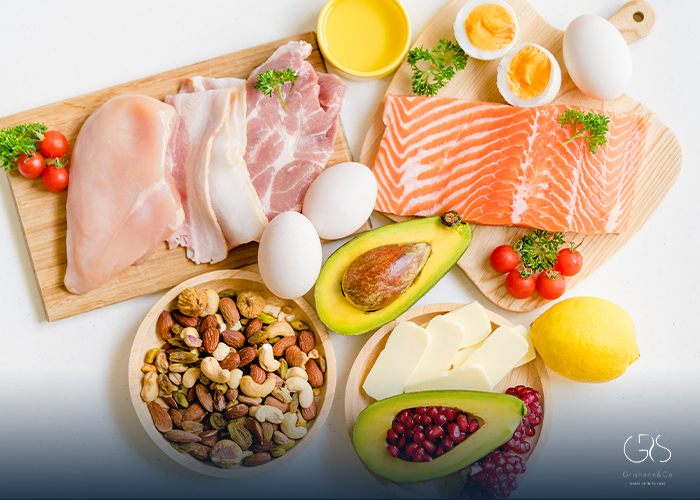In the realm of fitness and bodybuilding, the importance of protein for muscle growth cannot be overstated. Whether you are an athlete, a fitness enthusiast, or simply someone trying to build lean muscle mass, understanding the role of protein in muscle development is crucial. In this comprehensive guide, we will explore the significance of protein for muscle growth, the recommended daily intake, good sources of protein, and other factors that contribute to effective muscle building.
Why Does Protein Matter for Muscle Growth?
Protein is an essential macronutrient that plays a fundamental role in the repair, maintenance, and growth of muscle tissue. When individuals engage in resistance or strength training exercises, they create micro-tears in their muscle fibers. Consuming protein post-workout provides the necessary building blocks (amino acids) for the repair and growth of these damaged muscle fibers, leading to muscle hypertrophy and strength gains. Additionally, protein consumption helps to increase muscle protein synthesis, which is the process of building new muscle tissue. Without an adequate supply of protein, the body struggles to recover and grow, hindering muscle development.

How Much Protein Do You Need Per Day?
The recommended daily protein intake varies based on an individual’s age, sex, weight, activity level, and muscle-building goals. According to the Dietary Guidelines for Americans, the general recommendation for protein intake is 0.8 grams per kilogram of body weight. However, for individuals who engage in regular resistance training or intense physical activity, the protein requirements are higher to support muscle repair and growth.
How Much Protein Do You Need to Build Muscle?
For those aiming to build muscle, the International Society of Sports Nutrition suggests a higher protein intake of around 1.4 to 2.0 grams of protein per kilogram of body weight per day. This increased consumption of protein provides the necessary amino acids to support muscle recovery and growth, especially in the post-workout period when protein synthesis is heightened. Consuming protein in the form of high-quality sources becomes paramount in achieving optimal muscle-building results.
Good Sources of Protein
Obtaining protein from a variety of sources ensures that the body receives a broad spectrum of essential amino acids required for muscle repair and growth. Good sources of protein include lean meats, poultry, fish, dairy products, eggs, legumes, nuts, seeds, and plant-based protein sources such as tofu and tempeh.

Animal Proteins
Animal proteins are considered complete proteins as they contain all essential amino acids essential for muscle growth. Lean meats such as chicken breast, turkey, and beef, as well as fish and eggs, are excellent sources of high-quality animal protein. Dairy products like Greek yogurt, cottage cheese, and milk are also rich in protein and offer a convenient way to boost daily protein intake.
Tips for Consuming Protein for Muscle Growth
To maximize the benefits of protein for muscle growth, it is important to distribute protein intake across multiple meals throughout the day. Aim to include a source of protein in each meal and snack to support consistent muscle protein synthesis and provide the necessary amino acids for muscle repair. Additionally, consuming protein in close proximity to your workout, particularly post-exercise, can enhance recovery and promote muscle growth.
Can You Have Too Much Protein?
While protein is essential for muscle growth, there is a limit to how much the body can effectively utilize. Consuming excessively high amounts of protein can strain the kidneys over time and potentially lead to dehydration. Additionally, consuming very high levels of protein may displace other important nutrients in the diet, such as healthy fats and carbohydrates, which are also crucial for overall health and exercise performance. It is important to strike a balance and avoid overconsumption of protein. Consulting a healthcare provider or a registered dietitian can help determine an appropriate protein intake based on individual needs and goals.
Other Factors for Building Muscle
In addition to protein, other factors such as resistance training, adequate rest, hydration, and overall nutrition play pivotal roles in building muscle. Engaging in regular strength training exercises that challenge the muscles, getting sufficient sleep for muscle recovery, staying hydrated, and consuming a balanced diet rich in complex carbohydrates, healthy fats, and micronutrients all contribute to maximizing muscle growth potential.
Conclusion
Protein is a foundational component in the journey of muscle building and plays a critical role in supporting muscle repair and growth. An optimal protein intake, combined with a well-rounded nutrition and fitness regimen, is essential for achieving muscle hypertrophy and strength gains. By understanding the significance of protein for muscle growth, identifying the recommended protein intake, incorporating good sources of protein into the diet, and considering other contributing factors, individuals can effectively enhance their muscle-building efforts and achieve their desired fitness goals.
Sources
- medicalnewstod, How much protein do you need to build muscle?
- builtwithscience, What Are The BEST Sources of Protein to Build Muscle?










